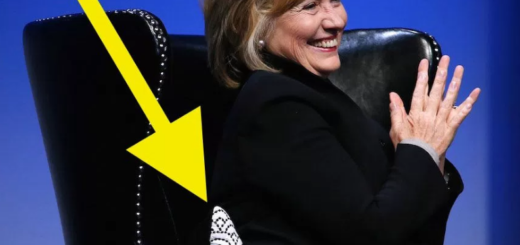Here’s How a GOP Contested Convention Works, As Explained by Mean Girls

By JORDAN ECARMA
As you may have noticed, the 2016 election has been CRAZY.
You can thank reality TV star turned presidential candidate Donald Trump for that. Most Republicans didn’t see Trump’s campaign as a threat, so it wasn’t until his Make America Great Again slogan starting winning primary elections that they really panicked.
Trump is ahead when it comes to delegates who are committed to vote for him at the convention in July that will officially decide the GOP nominee, but he still isn’t on his way to a clear majority (50 percent of the total 2,472 available delegates, plus one). He or another candidate has to win 1,237 votes from delegates to win the nomination outright.
The Republican National Committee has designed this cutesy infographic with the basic outline of how the process works.
 Credit: GOP.com
Credit: GOP.com
It’s a simplification since the delegate process is 1) incredibly intricate thanks to different rules for each state and 2) based on human decision-making instead of cold, hard math. (Don’t forget that delegates are people.)
In an ordinary election year, a candidate would come to the Republican National Convention with a clear majority of delegates and the vote in Cleveland would essentially be a rubber stamp to say, yes, here’s the candidate the GOP is nominating for president.
What makes 2016 different? Trump is ahead when it comes to delegate numbers. But he still isn’t close to a 1,237 delegate majority, which would mean enough GOP voters supported him for him to represent the party in November. No delegate majority = no nomination. Contested/open/brokered convention, here we come!
So what will a GOP contested convention look like? We thought “Mean Girls” could explain it best.
Here’s how GOP leaders feel about the idea of having Trump as the Republican nominee …

But more importantly, here’s how plenty of voters feel about having Trump as the Republican nominee:

Trump has some hardcore supporters who will overlook basically anything, including when he mocked a disabled person and that time he lied on behalf of his top campaign aide (who has since been charged with battery).

But he’s going to have yuuuuuge problems when it comes to winning over delegates who actually understand the political process and have loyalty to the party.

Depending on the state, some delegates are bound to vote for Trump on the first ballot at the convention even if they don’t really want to.

BUT … if Trump doesn’t have 1,237 delegates supporting him on that first ballot, it gets a little crazy …

Because a lot of delegates become “unbound” on a second ballot and are free to vote for someone else. Even more delegates are similarly unbound if the vote goes to a third ballot. Trump could be saying goodbye to a lot of votes.

Those delegates are likely to go to Ted Cruz since he’s been studying his delegate math as well as gaining broad support from both “establishment” and “grassroots” Republicans …

But you never know: John Kasich could shake things up too if he persuades enough delegates to switch their votes to him.

Bottom line: A contested convention is the GOP’s best hope for having a candidate who isn’t losing to Hillary Clinton by double digits in the polls.

Trump has threatened that there will be riots if he isn’t the nominee.

But if he doesn’t win the majority of delegates, he doesn’t win the nomination. Rules are rules.

Everybody ready for a contested convention? To quote Kasich, it’s gonna be “so cool.”

Jordan Ecarma is a former journalist now living the millennial dream: getting paid for writing Facebook statuses (that is, digital PR). She watches her use of the f-word (“feminism”) around conservatives and the c-word (“conservatism”) around feminists. Find her under @JordanEcarma.



